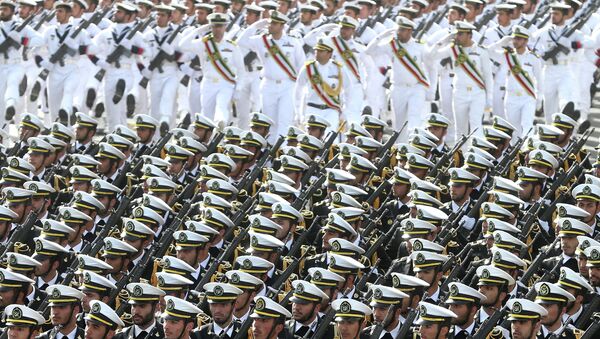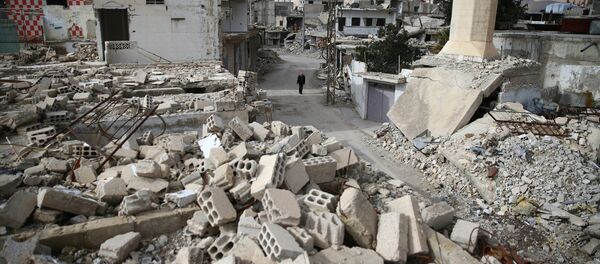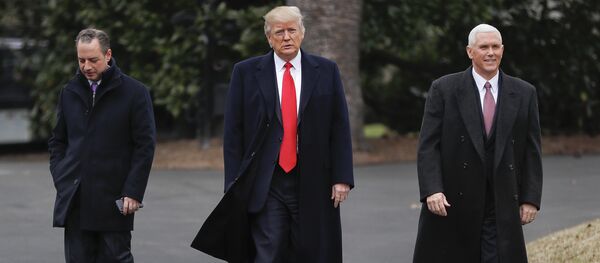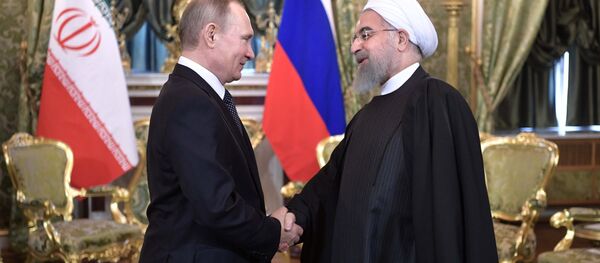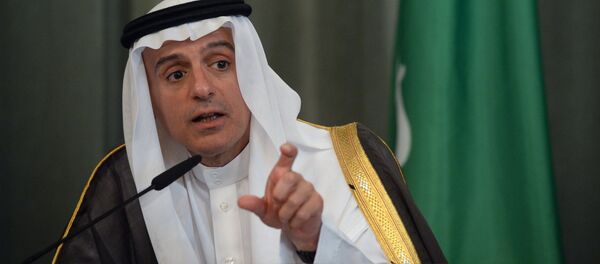He added that Iranian military advisors are currently in Syria and the Islamic Republic would deploy more "as long as there is a need" for advisory support.
The senior commander emphasized that Iran’s military advisory aid is both technical and tactical.
"When you want to offer advisory help to the army of a country in a war, you must be present on the scene and we have advisors in Syria in various areas such as strategic, technical, specialized, tactical and technical [sectors],” he specified.
The announcement came a week after Russia said it has withdrawn almost half of its air grouping originally based at the Hmeymim facility in Syria.
On April 26, chief of the Main Operational Directorate Col. Gen. Sergei Rudskoi said at the VI Moscow Conference on International Security that the number of terrorist units in Syria has decreased, which allowed the Russian General Staff to withdraw almost half of the aircraft based at the Hmeymim airbase.
The timing of the two announcements has led some military analysts to suggest that Iranian military advisors will succeed Russia in restoring the combat efficiency of the Syrian army. Others however suggested that Tehran might be pursuing other goals.
These units, he explained, have been assisting the Syrian military on the battlefield for a long time, however Iran has never publicly commented on its aid. The fact that the IRGC command is now openly announcing the deployment of its military advisors is a sign that its current aims are becoming more transparent.
The Syrian army, he said, is in a bad need of serious reforms, it should be restored, armed and it needs new human resources. It should also establish cooperation with other armed units who are fighting against terrorists.
The military analyst recalled that among these units are the National Defense Forces (NDF), a pro-government militia, formed after summer 2012 by the Syrian government a part-time volunteer reserve component of the Syrian military, various Shi'ite units, such as Lebanese and Iraqi Hezbollah and other Iran-backed groups.
Hence, he said, Iran's aim will be to integrate them with the Syrian army, which will be a difficult task, but IRGC are quite capable of doing it.
His view is echoed by Director of the Center for Contemporary Iranian Studies Rajab Safarov, who suggested that IRGC are strengthening the military defense of its Syrian ally while Russia is doing the same politically.
"Russia is now behaving very cautiously in Syria, avoiding any abrupt movements. It has concentrated on the political settlement of the crisis and on the negotiations," he told Sputnik.
"Russia has taken a time-out to be able to re-group and find a new solution. It happened partially due to the election of Donald Trump. The US is now fully reconsidering its position on Syria and the Middle East, trying to offset Russia's and Iran's achievements in the settlement of the Syrian conflict," Safarov said.
The recent speculations of the chemical attack and demonstrative missile attack on the airbase in Syria are part of the new US strategy, he said. By stepping up its military presence in Syria, Iran is trying to preserve the results the two countries have recently reached, while Russia is searching for new opportunities for a peaceful solution to the crisis.
The expert also noted that a temporary break in the military activities in the country, given by the renewed peace talks in Astana, might be of benefit not only to Damascus but to other forces who are not interested in the settlement of the Syrian crisis under Russia's or Iran's scenario.
Iran does not need chaos in a neighboring state, Safarov said. The likely collapse of the country after the removal of Assad will not only strengthen international terrorism but will cut Tehran off from friendly states. This is the worst possible scenario and will have a negative impact on the Palestinian issue, the situation in Lebanon and on other countries of the Arab world where Iran has its own interests.
By stepping up its military presence in Syria, Iran is trying to secure its, and Russia's interests, in the region, he therefore suggested.
Some experts however suggested that the announcements of the Iranian senior commanders are addressed to the people of their own country ahead of the presidential elections which are scheduled for May 19. It might be that the announcement is addressed to supporters of the major rivals to reformer Hassan Rouhani, the current president of the country, the conservatives Mohammad Bagher Ghalibaf and Ebrahim Raisi who are considered hardliners and likely to pursue a tougher foreign policy.

